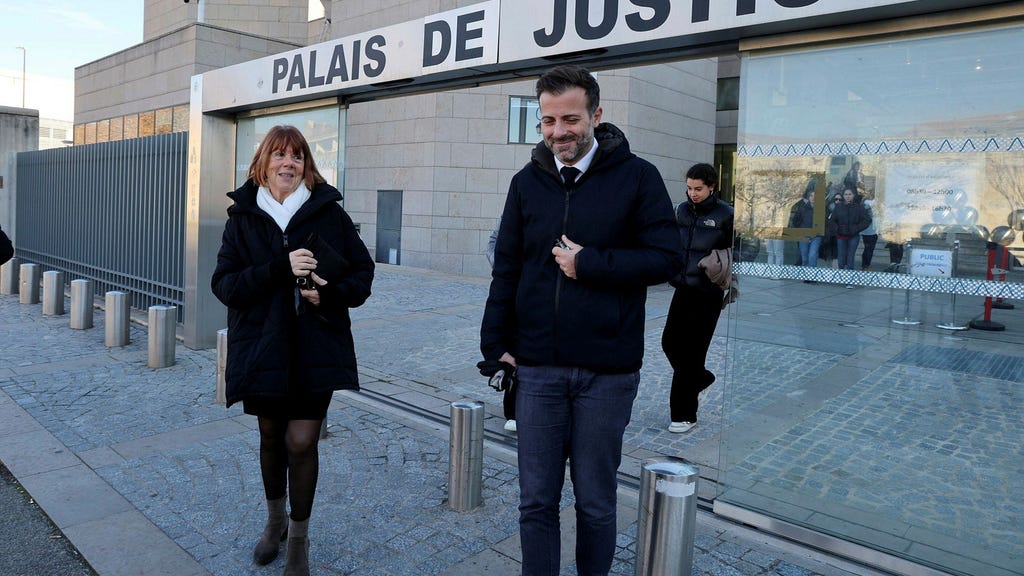The Gisèle Pelicot case, a harrowing account of systematic sexual abuse, has sent shockwaves through France, challenging deeply ingrained perceptions about perpetrators of sexual violence. Fifty men, ranging in age from 26 to 73, stand accused of participating in the repeated rape of Pelicot, often alongside her husband. This diverse group, hailing from various socioeconomic backgrounds and professions, has been collectively dubbed ”Monsieur Tout-le-Monde” – Mr. Everybody – a moniker that underscores the unsettling ordinariness of their profiles. This starkly contrasts with stereotypical images of rapists as monstrous outsiders, highlighting the pervasive nature of sexual violence and its potential to lurk within seemingly unremarkable individuals. The case has ignited a crucial national conversation about the complexities of sexual assault, the insidiousness of coercion, and the urgent need for societal introspection.
The sheer number of accused individuals and their diverse backgrounds have shattered the myth of a typical rapist profile. This case dismantles the notion that perpetrators are easily identifiable outliers, instead demonstrating that sexual violence can be perpetrated by individuals from all walks of life – teachers, businessmen, retirees, and laborers. The ”Mr. Everybody” label emphasizes this chilling reality, forcing society to confront the uncomfortable truth that perpetrators are not always easily recognizable monsters but can often be individuals integrated within communities, holding positions of trust, and appearing outwardly normal. This challenges preconceived notions and forces a reassessment of how society understands and addresses the issue of sexual violence. The case underscores the insidious nature of predatory behavior, which can hide beneath a veneer of respectability.
The case also brings to the forefront the complexities of consent within a marital context. While the involvement of Pelicot’s husband initially framed the narrative around complicity, the subsequent accusations against the fifty men reveal a broader pattern of systemic abuse extending beyond the confines of the marriage. This raises critical questions about the dynamics of coercion and the vulnerability of victims within intimate relationships. The fact that Pelicot was allegedly subjected to repeated assaults by multiple individuals, often orchestrated and facilitated by her husband, underscores the profound violation of trust and the systematic nature of the abuse she endured. It challenges conventional understandings of marital rape and highlights the devastating impact of coercion and manipulation within intimate partnerships.
The legal proceedings surrounding the Gisèle Pelicot case promise to be complex and challenging. Proving the guilt of fifty individuals, each with their own defense strategies and potential alibis, will require meticulous investigation and presentation of evidence. The case will likely rely heavily on Pelicot’s testimony, which will undoubtedly be subjected to intense scrutiny. The defense teams will likely explore various strategies, including questioning the reliability of her memory, suggesting consensual participation, or attempting to shift blame onto other individuals. The sheer scale of the case and the number of defendants present unprecedented logistical and legal challenges, making it a landmark case in French legal history.
Beyond the legal intricacies, the Pelicot case carries profound social implications. It has ignited a national conversation about sexual violence, forcing a reevaluation of societal attitudes towards victims and perpetrators. The ”Mr. Everybody” label has sparked discussions about the normalization of predatory behavior and the insidious ways in which sexual coercion can manifest within seemingly ordinary social interactions. The case has also brought to light the importance of believing and supporting victims, who often face significant barriers to reporting abuse due to fear, shame, and societal stigma. The Pelicot case has the potential to be a watershed moment in France, driving a much-needed shift in societal consciousness regarding sexual assault and consent.
Finally, the Pelicot case underscores the urgent need for comprehensive education about consent, healthy relationships, and the recognition of predatory behavior. By challenging ingrained stereotypes and highlighting the pervasive nature of sexual violence, this case compels society to confront uncomfortable truths and engage in meaningful dialogue about prevention and intervention. It emphasizes the importance of fostering a culture of respect, where consent is understood as an unequivocal and ongoing requirement for any sexual activity. The case serves as a stark reminder that combating sexual violence requires a multifaceted approach, encompassing legal reforms, societal shifts in attitudes, and comprehensive education that empowers individuals to recognize, prevent, and address abuse. The legacy of the Gisèle Pelicot case will likely be defined by its capacity to catalyze meaningful change and contribute to a future where sexual violence is no longer tolerated.














